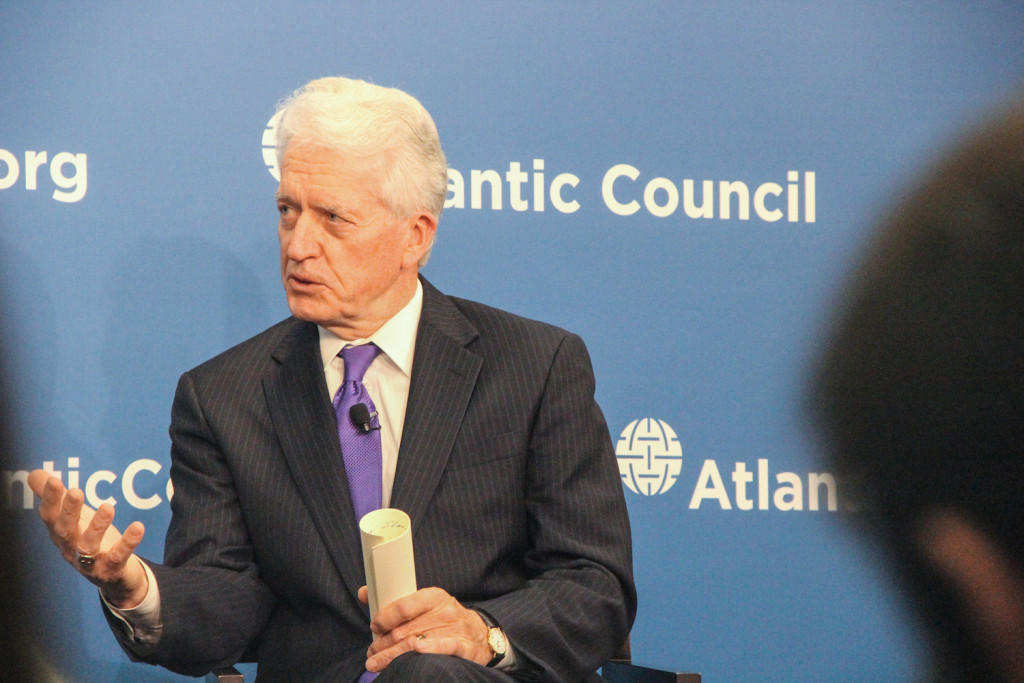WASHINGTON—A nuclear deal between Iran and the United States is possible, but the window may soon be closing, said former Congressman Jim Slattery at a panel Monday.
Slattery also criticized Israeli Prime Minister Benjamin Netanyahu for what he called a shortsighted view on nuclear negotiations between the U.S. and Iran. Netanyahu believes Iran intends to build a nuclear weapon that could eradicate his country.
“There is this sort of pre-judging [by Netanyahu] on the deal,” Slattery said at a panel hosted by the Atlantic Council, an international affairs think tank.
“There isn’t a deal yet, and he’s saying that he will do everything he can to prevent it from being approved. Let’s wait until we see the deal, and then we can talk about the options.”

Former congressman Jim Slattery spoke Monday at the Atlantic Council on people-to-people diplomacy and how that should take place between the U.S. and Iran.
Slattery was in Iran in December to speak at the International Conference on World Against Violence and Extremism.
The late March deadline for completing negotiations with Iran will not be extended any further, President Barack Obama reiterated at a press conference Monday. The final deadline for drawing up an agreement is June 30.
Slattery said a deal to limit Iran’s nuclear program in return for the U.S. lifting economic sanctions would enhance U.S. interests, and also eventually lead to diminished hostilities between Iran and Israel.
“President Obama’s time in office is very limited,” Slattery said. “The Iranian government [also] has to have some success here to demonstrate that an improved relationship in the U.S. and the West will yield benefits to Iran… [otherwise] their popularity collapses as well.”
Slattery left discussions in December with top representatives of the majlis—Iran’s parliament—with “a firm belief” that the government wants an agreement with the U.S. on the nuclear question. He emphasized the need for more direct dialogue between both governments.
“Iran is a country of 80 million people with an 85 percent literacy rate and some of the richest energy reserves in the world,” Slattery said. “Imagine a positive relationship with Iran, and imagine what that might mean for the Middle East. That’s what we should be thinking about.”
Netanyahu came under fire recently when he accepted Speaker John Boehner’s invitation to address Congress on March 3—just three weeks before a framework nuclear agreement between the U.S., its allies and Iran is due. The White House was not informed of the invitation in advance, and many see it as an insult to Obama.
Israeli opposition leaders have called on the prime minister to cancel the speech. Both Obama and Vice President Joe Biden will not attend the address, attributing their absences to the close proximity of the Israeli elections and pre-planned travel plans respectively.
Netanyahu and his aides argue that he has a duty to make Israel’s case against the Iranian nuclear program to American lawmakers. He is expected to push for additional sanctions on Iran.
“I would not attend the speech because I believe his coming here is showing disrespect to the office of the president,” Slattery said.





